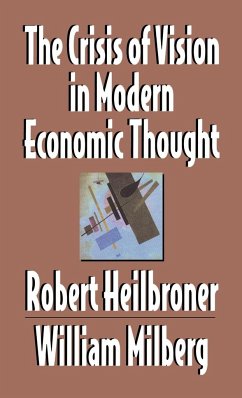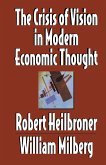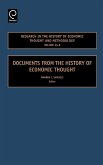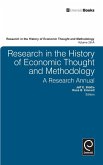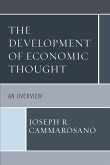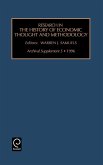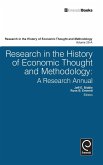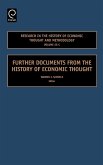A deep and widespread crisis affects modern economic theory, a crisis that derives from the absence of a 'vision' - a set of widely shared political and social preconceptions - on which all economics ultimately depends. This absence, in turn, reflects the collapse of the Keynesian view that provided such a foundation from 1940 to the early 1970s, comparable to earlier visions provided by Smith, Ricardo, Mill, and Marshall. The 'unraveling' of Keynesianism has been followed by a division of discordant and ineffective camps whose common denominator seems to be their shared analytical refinement and lack of practical applicability. Heilbroner and Milberg's analysis attempts both to describe this state of affairs, and to suggest the direction in which economic thinking must move if it is to regain the relevance and remedial power it now pointedly lacks.
Table of contents:
1. What is at stake; 2. Classical situations; 3. The Keynesian consensus; 4. The great unraveling; 5. The crisis of vision; 6. The nature of society; 7. The science of capitalism.
A deep and widespread crisis affects modern economic theory, one that derives from the absence of a vision - a set of widely shared political and social preconceptions - on which all economics ultimately depends. The authors' analysis attempts both to describe this state of affairs, and to suggest the direction in which economic thinking must move if it is to regain the relevance and remedial power it now pointedly lacks.
The authors present the current confused state of economic theory and suggest the direction in which economic thinking must move in order to regain the relevance it now lacks.
Hinweis: Dieser Artikel kann nur an eine deutsche Lieferadresse ausgeliefert werden.
Table of contents:
1. What is at stake; 2. Classical situations; 3. The Keynesian consensus; 4. The great unraveling; 5. The crisis of vision; 6. The nature of society; 7. The science of capitalism.
A deep and widespread crisis affects modern economic theory, one that derives from the absence of a vision - a set of widely shared political and social preconceptions - on which all economics ultimately depends. The authors' analysis attempts both to describe this state of affairs, and to suggest the direction in which economic thinking must move if it is to regain the relevance and remedial power it now pointedly lacks.
The authors present the current confused state of economic theory and suggest the direction in which economic thinking must move in order to regain the relevance it now lacks.
Hinweis: Dieser Artikel kann nur an eine deutsche Lieferadresse ausgeliefert werden.

